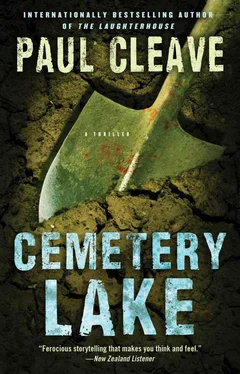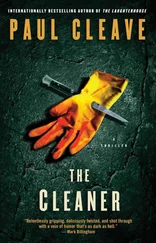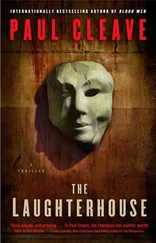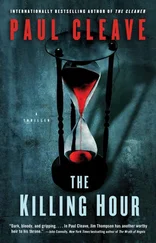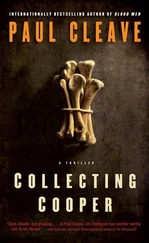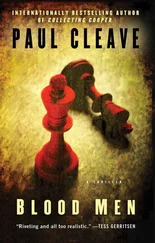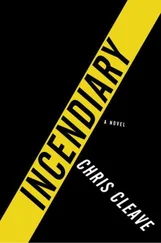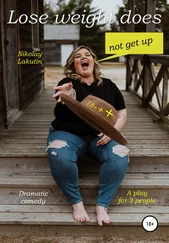Paul Cleave - Cemetery Lake
Здесь есть возможность читать онлайн «Paul Cleave - Cemetery Lake» весь текст электронной книги совершенно бесплатно (целиком полную версию без сокращений). В некоторых случаях можно слушать аудио, скачать через торрент в формате fb2 и присутствует краткое содержание. Год выпуска: 2008, ISBN: 2008, Издательство: Atria Books, Жанр: Триллер, на английском языке. Описание произведения, (предисловие) а так же отзывы посетителей доступны на портале библиотеки ЛибКат.
- Название:Cemetery Lake
- Автор:
- Издательство:Atria Books
- Жанр:
- Год:2008
- ISBN:9781451677836
- Рейтинг книги:3 / 5. Голосов: 1
-
Избранное:Добавить в избранное
- Отзывы:
-
Ваша оценка:
- 60
- 1
- 2
- 3
- 4
- 5
Cemetery Lake: краткое содержание, описание и аннотация
Предлагаем к чтению аннотацию, описание, краткое содержание или предисловие (зависит от того, что написал сам автор книги «Cemetery Lake»). Если вы не нашли необходимую информацию о книге — напишите в комментариях, мы постараемся отыскать её.
Cemetery Lake — читать онлайн бесплатно полную книгу (весь текст) целиком
Ниже представлен текст книги, разбитый по страницам. Система сохранения места последней прочитанной страницы, позволяет с удобством читать онлайн бесплатно книгу «Cemetery Lake», без необходимости каждый раз заново искать на чём Вы остановились. Поставьте закладку, и сможете в любой момент перейти на страницу, на которой закончили чтение.
Интервал:
Закладка:
“One of the nurses,” Carol says, “is still very old school.” She doesn’t explain any further and she doesn’t need to.
I wind the court order into the typewriter, and type in the priest’s name and location of the bank in the provided space. Then I sign it with some unidentifiable scribble. Carol Hamilton watches me the entire time, but doesn’t ask what I’m doing. She doesn’t point out that I’ve gone over the two minutes I promised her I’d be. When I’m done, I thank her for her time, and she does something different for once-she puts one hand on my shoulder and, with the other, grabs my hand and tells me not to give up hope. I’m not sure whether she means for Bridget or myself.
I already have the car started and in gear when she comes out the doors and waves me down.
“It doesn’t mean anything,” she says, “and you need to understand that. But it’s still something you should see.”
“What is it?”
“Come with me,” she says, and I kill the engine and follow her back inside and upstairs.
My wife is still sitting by the window, staring out at the rain. Carol stays in the doorway as I walk into the room. Bridget is in the exact same position as earlier, and at first I’m not so sure what it is that Carol wants me to see, but then I see it. Bridget is clutching a photograph of our daughter. At some point since I walked out of here she has stood up and made her way over to the bedside drawers and picked up the photo frame. I think about the photographs of the dead girls in my pocket, and it seems like an omen: that of all days for her to have somehow taken this photograph it has to be this day. She is holding it against her, the frame pressing into her breasts, the image of Emily facing the window as though Bridget is trying to share the view. I want to read more into it, I want to believe this is more than just one of her automated responses, and I study her face for something-a tear, a flicker of emotion-but there is nothing. Still, it is the first time she has ever picked something up and brought it back to her chair. At least it’s the first time I know of-it could be she does this at night and puts the pictures back in the morning. I don’t know, but I like the idea that in the dead hours of the night she gets out of bed and reaches for Emily. It’s sad, it’s depressing, but it’s the sort of hook that I can come along and hang some hope on.
I sit down next to her and I rest my head on her shoulder, and I hug her and tears slide from my eyes and soak into her gown, and I pray to the God I want to believe in but can’t that Bridget will tell me that things are okay, that she will stroke the back of my head and comfort me.
But she doesn’t. When I look back at her face it’s just as it was moments before. But my hope stays firmly on the hook I placed it on. I stay with her for a while-I’m not sure how long exactly-an hour, maybe two. At some point Carol Hamilton walks away. I see her on my way back out and she smiles, but she doesn’t say anything. I guess she is too frightened to offer me hope that she doesn’t think is there.
When I get back outside it’s raining hard. I drive home and change into some fresh clothes, even ironing a shirt and a pair of pants pulled from the dryer. My look could be the difference between getting the information I need and getting busted.
Back in town I can’t find a parking space and have to settle for one six blocks away from the bank. A few years ago and this place would have been closed on a Saturday afternoon; now hardly anything closes. I look at my watch and check the opening hours on the door. The bank shuts in less than twenty minutes. I’ve timed things perfectly.
The security guard gives me a strange look, and I realize it’s because I’ve taken two steps inside and come to a complete stop. I walk over to him. He seems unsure what to do. I pull out my ID, which I haven’t used in more than two years. I used to have a badge that went along with it, but that got handed back. The ID has the word Void stamped across the side of it, but I cover it with my finger and let the guard look at it for about a second before I put it away.
“I seen you on TV,” he says. “Didn’t realize you were still a cop.”
“Technically I’m not, but I’m working for them. That’s why I still have the ID,” I say, hoping it makes some kind of sense.
“Didn’t know there was a technically when it comes to working for the police.”
I give him the What are you gonna do stare. “Nothing is how it should be these days,” I say. “All I know is the pay is better on this side of technically than on the other side of actually .”
He shrugs, as if he doesn’t seem to care one way or the other. I guess he doesn’t. At twelve bucks an hour, why would he?
“I have a court order to access a customer’s account,” I say. “Can you point me in the direction of somebody to talk to?”
“Sure,” he says, and he brushes a hand over the side of his head where a corner flap of his toupee is sticking up. He leads me to an open office door and knocks on it. A woman in her midthirties stands up from behind her desk and comes over. “There’s a guy here who wants to access an account,” he says, and she looks at him a little blankly because accessing accounts is what people come here to do. But then he adds, “He has a court order.”
“Oh. Well, it’s a little more complicated than that,” she says, looking me up and down. “Hey, haven’t I seen you on TV?”
“Probably. Can we talk in here?”
“Of course,” she says, and she looks at the security guard with a dismissive gesture. He doesn’t seem to react one way or the other, he just walks away, but when he gets near the main entrance he looks a little more vigilant now that a former law-enforcement officer is around.
She closes her office door and sits behind her desk. There’s a name plaque on the front of it. Erica . On the wall there’s an aerial shot of Christchurch that doesn’t show the true emotion of the city, and a couple of photographs, one of which shows Erica standing next to a man who looks vaguely familiar, probably somebody from one of the numerous banking ads on TV.
“So, what’s this all about, Detective. .”
“Tate,” I say, and I don’t bother to correct her assumption that I’m still with the force. The business card I was going to give her stays in my hand, and the chances of coming out of here with what I want have just increased.
“I have an account number here,” I say, and I slide the bank statement over to her. I have underlined Father Julian’s account number. I also slide her over the court order. The judge’s name on the top of it is as made up as his signature.
The thing with court orders is a lot can come down to the timing of the delivery. Erica picks it up, and then she does exactly what I expect her to do-she glances at her watch. I’ve seen it a dozen times at the end of the working day when we’ve shown up with one of these orders: it was often the time we’d aim for. The other thing is that people don’t know what to do with them. They look at them, but they don’t know how to react because most people have never seen one before. They’ve seen them get delivered on TV and they figure that what happens on TV is probably the thing that happens in real life. They suddenly feel like the order has just taken away all their rights of refusal and they don’t argue it. They only ever fight it if they have something to hide.
Erica reads it thoroughly. In the location area the words printed are “to access any and all available accounts of the account holder” and after that I’ve typed out the account number.
“This is one of your bank account numbers, isn’t it?” I ask.
Читать дальшеИнтервал:
Закладка:
Похожие книги на «Cemetery Lake»
Представляем Вашему вниманию похожие книги на «Cemetery Lake» списком для выбора. Мы отобрали схожую по названию и смыслу литературу в надежде предоставить читателям больше вариантов отыскать новые, интересные, ещё непрочитанные произведения.
Обсуждение, отзывы о книге «Cemetery Lake» и просто собственные мнения читателей. Оставьте ваши комментарии, напишите, что Вы думаете о произведении, его смысле или главных героях. Укажите что конкретно понравилось, а что нет, и почему Вы так считаете.
